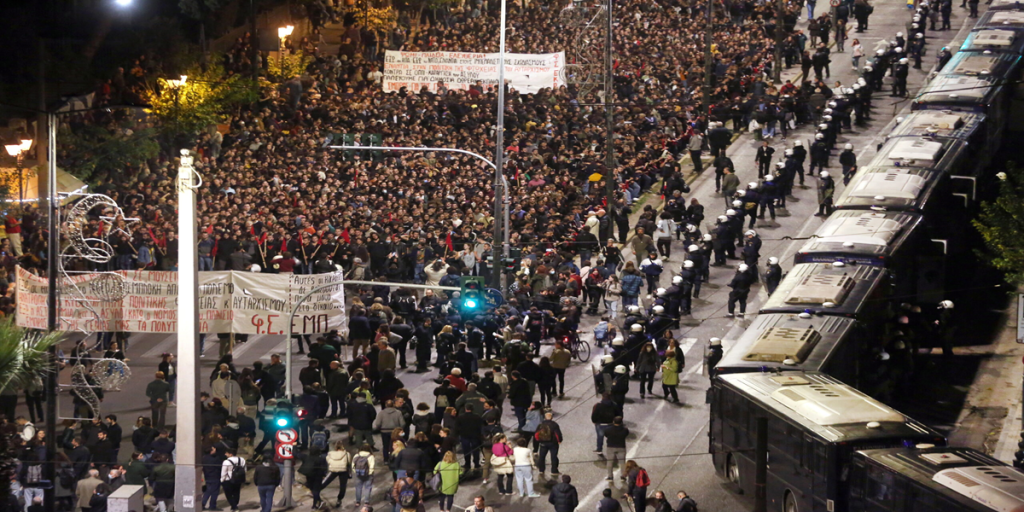Around 25,000 people took to the streets of Athens on Sunday to commemorate the 51st anniversary of the November, 1973 student-led Polytechnic uprising, a pivotal event that helped end military rule in Greece. The protests, holds annually in honor the lives of 24 people killed during the violent crackdown by the ruling junta against anti-government demonstrators.

Police reported a heavy security presence, with over 5,500 officers deployed across the city, supported by riot squads, drones, and helicopters. The focus of the security effort was on key locations, including the US and Israeli embassies, due to past tensions surrounding foreign support for the military dictatorship during the Cold War. Ahead of the march, authorities detained more than 110 people in routine checks.
The demonstrations began at the Polytechnic campus, where students carried a bloodstained Greek flag—symbolising the night a tank crushed the gate in 1973. Some protesters also waved Palestinian flags, while groups of civil society organisations, opposition parties, and workers’ unions marched toward the US and Israeli embassies to protest past foreign backing for the junta.
Greece Prime Minister Kyriakos Mitsotakis on Sunday emphasised the importance of free parliamentary democracy as he described the message of resistance emanating from the Polytechnic uprising as an enduring symbol of progress which is neither trapped in the past nor sacrificed to party exploitation.
Protests also took place across Greece, including in Thessaloniki, where clashes broke out between protesters and riot police after the march. Police responded with tear gas and flash bombs after a group of young demonstrators threw Molotov cocktails.
The 1973 uprising remains a defining moment in Greece’s transition from military dictatorship to democracy, with the crackdown widely viewed as breaking the junta’s grip on power.
The first uprising was on February 21, 1973, Greek students staged a historic act of defiance against the military junta, with law students at the University of Athens leading the charge. The students went on strike and barricaded themselves inside the Law School building, demanding the repeal of a controversial law that mandated forcible conscription.
In response, the military regime resorted to violent tactics, including widespread use of torture, to suppress the protest and quell the burgeoning student rebellion.


